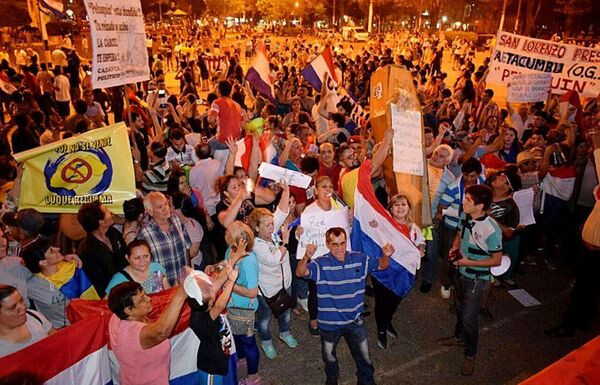
In a central mass held at the Caacupé Basilica, Bishop Ricardo Valenzuela of the Diocese of Caacupé emphasized, "There can be no happiness in a society that tramples on dignity and humiliates." This serves as an urgent warning to government authorities and public officials. It is time to heed the cries of the people and commit to their entrusted duties. The people of Paraguay feel their survival threatened, endure humiliation due to poor public services, and are victims of violence and inequality.
Bishop Valenzuela stressed during the mass that peace cannot flourish in a world riddled with indifference and the violation of human dignity. He referred to the victims of "sins against peace, indifference, and sins against creation itself," specifically pointing out indigenous communities, migrants, abused children, women victims of domestic violence, and the marginalized poor.
The Bishop's message arrives at a timely moment for Paraguayan society, facing a crisis, and underscores the government's need to listen to its people's needs. This aligns with the pastoral letter issued by Paraguayan bishops last December, which highlighted the realities facing the nation, including an educational crisis, the marginalization and neglect of indigenous communities, the exclusion of small-scale producers from rural development policies, authoritarianism, abuse of power, corruption in both public and private sectors, and the exploitation of the Earth and its resources.
Urgent Needs for Indigenous Communities and Public Health
Particularly, Paraguay's indigenous communities, hundreds of families among them surviving in extremely poor conditions in the Chaco region, are facing national neglect. They desperately need drinking water, food, and health support, and above all, authorities must respect their well-being and dignity. Paraguay can no longer remain indifferent to the suffering of its indigenous peoples.
Another pressing demand is the improvement of public health policies. Better management and increased budget allocation for the health sector are urgently needed. If necessary, unnecessary state expenditures should be cut and reallocated to public health services. The reality of patients having to protest in front of public hospitals to demand treatment and medication is simply unacceptable.
Accountability for Public Officials and Support for Youth
Members of Congress and Senators, as representatives of the people, are also expected to perform their roles better. They must cease prioritizing private interests and renounce shameless privileges. While the public trembles with anxiety due to widespread urban violence, these lawmakers are busy employing their children and relatives in public institutions and using public funds to travel to the Caribbean, New York, Montevideo, Buenos Aires, and dreamlike European cities. Meanwhile, the very people who sustain these public funds through their taxes cannot even enjoy decent and efficient public transportation services.
In this vein, it is frustrating that while lawmakers are amply provided with coffee and snacks during meetings, countless poor children in Paraguay lack school supplies or school meals.
A special mention must be made of Paraguay's youth. Pope Francis urged them to "make a mess, but a well-organized mess," yet they are deprived of the opportunity to live a dignified and healthy life. Thousands of young people caught in drug trafficking and substance abuse are the faces that clearly show the nation's failure to provide them with opportunities. Paraguayan youth are not included in government plans, and there are no public policies for them. They are not provided with the essential living conditions to prepare them for a dignified and safe working world, nor for their development through access to health, education, culture, and sports.
Authorities and public officials must heed this warning: "There can be no happiness in a society that tramples on dignity."
[Copyright (c) Global Economic Times. All Rights Reserved.]



























